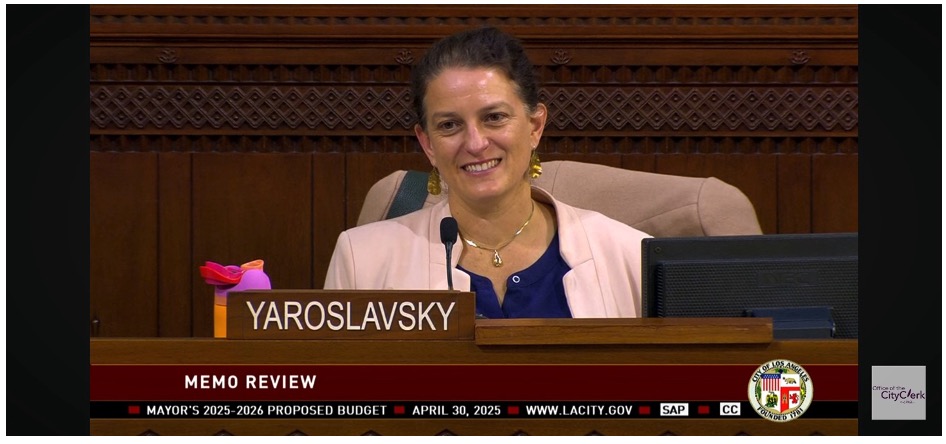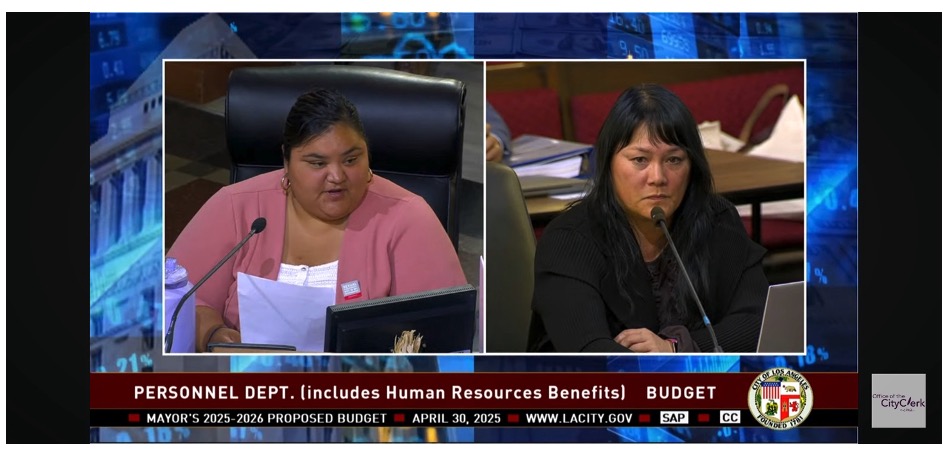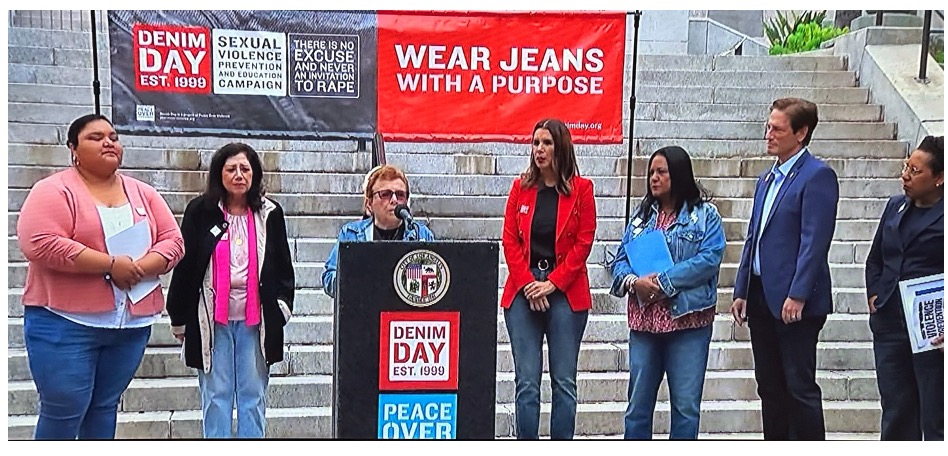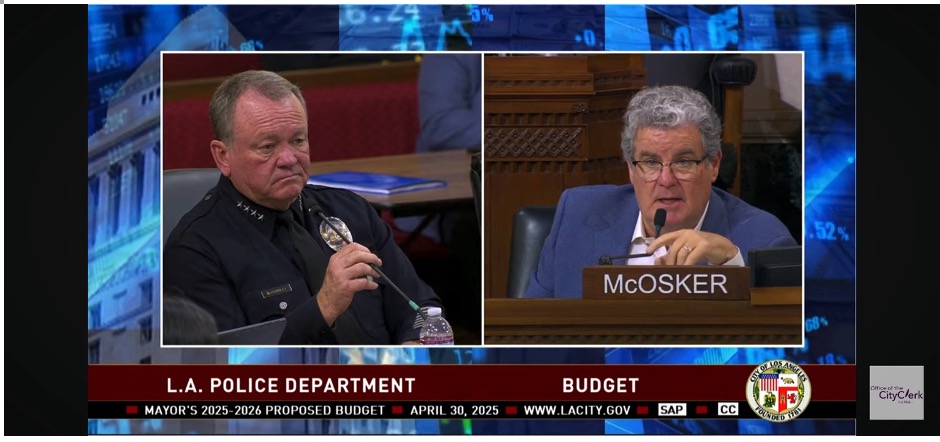Comments
ERIC PREVEN’S NOTEBOOK - Smart Speaker: A comment about how the county is rushing to settle 6,800 allegations, for the record, these have not been 100% confirmed, but I believe the people. I believe they were abused, and it’s horrible, but $4 billion, no prosecution, no trial. And meanwhile, the lawyers are going to cash in. And the Board calls for more corrective action and paper reforms. Here’s my idea that I told you earlier. Divide the settlement by four, cap the legal fees at 10%. There’s no reason for these attorneys who are filing this paperwork should get so rich. And reinvest the rest of the money not in a bureaucracy but in actually investigating and prosecuting the perpetrators. And mandatory Supervisor training. You have to send one of the kids from the office over there every week, each of you. You don’t fix a culture of fear and silence with memos and ring binders. And no more burying reports. Your litigation and risk report has been received and filed.

One dead fish washing up on shore in Malibu.... can we get a Budget Memo?
After having my hand lowered twice....
Smart Speaker: The idea that we’re suddenly having problems with AT&T, I feel terrible for Item 6 about the abatement of the fire debris, but the reality is that this is the abatement of the public comments, because you completely screwed me, so I’m going to write an article about this because you didn’t want to hear it directly. I’m very insulted because, particularly the legal stuff and the difficulties... what we need is, as I said, Board of Supervisors training. And the district offices should go to the custody facilities once a week or daily. You can rotate, but honestly, this is unbelievable. Where is Lindsey Horvath? This is the mess that her great sensei, Sheila Kuehl created, so she should be here.
Busted Budget Bureau:

Katy wth a "Y" Yaroslavsky (...actually three Ys)
So far, the Los Angeles budget hearings (April 25–30, 2025) are like a dysfunctional family dinner. The table’s groaning under a $13.95 billion spread, the gravy boat’s leaking a $900 million hole, and 1,647 relatives are quietly getting pink slips between the yams and the pie.
Councilmember Katy Yaroslavsky sits at the head, carving departments with polite precision. I confess, she reminds me of a former spouse—cordial, composed, and stirring enough sympathy to almost forgive the chaos she’s presiding over. But this ship’s listing, with layoffs, jail closures, and a 311 meltdown looming.
The public brought 328 voices to this civic potluck, only to be silenced by a one-minute comment limit I blasted in my Westside Current op-ed—like handing them a fire extinguisher with no pin. On April 30, six councilmembers—Yaroslavsky, Bob Blumenfield, Tim McOsker, Eunisses Hernandez, Heather Hutt, and John Lee (guest-hosting)—danced with POLA, LAPD, Personnel, and ITA. Some patched the hull. Others waved flashlights with dying batteries.

Eunisses Hernandez chats with Grace Liu the former DONE chief and Personnel insider.
I’m ranking them—gold, silver, bronze—handing honorable mentions to the tenacious and the struggling, and slapping a dishonorable mention on the dubious. Their strongest and weakest moments are all here. And soon, we’ll dive into the astonishing pile of budget memos—bureaucratic poems titled “We’ll get back to you.” (When you are too tired to read them.)
The chaos erupted April 25 at City Hall in Van Nuys, with 124 speakers given 60 seconds in what felt like speed-dating democracy. Hiroyuki Matsuda warned that City Planning layoffs would torpedo housing and Olympic goals—a cry later echoed by Blumenfield’s service-cut rage. On April 28, another 204 joined in the chorus downtown. Rebecca Garcia shouted, “Kids need these!” fighting for Youth Development programs—words that haunted Yaroslavsky’s consolidation probes. Brittany Thorne brought 27 allies to rescue Animal Services, demanding, “Shelters are crumbling—fund spay/neuter!” Jacqueline Sonderling’s plea for Inside Safe got punted to May 1, like a dish nobody wants to wash.
My op-ed nailed it: days of hearings, 328 speakers, dozens of urgent topics—jammed into one-minute slots, like shouting through a megaphone with dead batteries. I’m still demanding two to three minutes, split agendas, and restore virtual access. Angelenos can’t weigh in if they can’t breathe.

Nathan Hochman joins POV recognition, while Public Integrity flaps in the breeze.
By April 29, public comment was over. Now it was time to grill Matt Hale and Matt Szabo on a budget bleeding $900 million, with $500 million in reserves and $200 million in liabilities. Personnel’s Malaika Billups outlined the layoff nightmare: 1,647 jobs cut, no software, 200 staff sorting seniority like mail in the dark. Blumenfield fumed over Olympic priorities starving DOT and Streets LA. McOsker squeezed out $7.5 million in audit savings. Hernandez’s Universal Basic Income memo sank without a trace. Szabo’s “we’ll report back” dodge was slippery as usual.
April 30 was the main course. No public comments—just councilmembers facing departments trying to dodge the ax. POLA’s Dina Aryan-Zahlan boasted a $1.7 billion cash hoard and $713 million in revenue, then fretted that a 10% cargo drop from tariffs could cost $50 million per million TEUs, while sidestepping Blumenfield’s push to absorb layoffs. LAPD’s Chief McDonnell warned that 403 civilian cuts (15.2% of 2,650) and $36 million in overtime slashes could shutter Hollywood, Pacific, and Harbor jails, delay DNA tests, and idle patrol cars (17% already broken).
Personnel’s Billups called it “near impossible” to process the 1,647 layoffs in four months. Seventy-eight staff—19% of the department—would be processing their own exits. Like cleaning your own jail cell. ITA’s Ted Ross, the “department behind the department,” warned that 54 job cuts would crash 311. Wait times already suck. No weekends. No mercy. Ross is charming, but ITA is the department who shrink residents down to “tiny” screens while offering multi-camera coverage of the city council windbags, robbing us while following orders.
So without further delay.
Blumenfield gets the gold—because it’s all his fault. He’s been in the budget kitchen long enough to know exactly which ingredients spoiled. But to his credit, he grabbed a wrench and started fixing the engine anyway. He pushed Cisco’s 0% financing to replace $42 million in outdated gear, pitched AI tools for 311 and layoffs, and fought to restore LAPD’s 133 specialized positions—tying tech to justice. His finest moment came pressing Ross: “Every dollar counts. Can we use AI to handle 311 calls or calculate layoffs faster?” But he stumbled by glossing over ITA’s app sins, enthusiastically pitching Cisco without questioning how residents keep getting sidelined.
McOsker takes the silver medal, like a neighbor with duct tape and a clipboard. His plan to bill insurance companies for crash cleanup was bold, and his push for POLA to absorb laid-off gardeners and mechanics showed heart. He kept LAPD sharp on patrols and wondered about the Rand study. His $7.5 million in audit savings added some real weight. But he let POLA’s $1.7 billion stash slide by with a soft “Let’s get a memo,” instead of pinning Aryan-Zahlan down.

A coupla beers...
Yaroslavsky, the Chair, earns bronze. She ran the hearing like a teacher managing a boisterous classroom. Her cordiality shines, and she asked smart questions—nailing the $50 million-per-TEU tariff risk. But she let Szabo’s evasions slide. When he danced around the layoff process, she stayed silent. No jab. No follow-up. Yaroslavsky established a one-finger, two-finger system to track question rounds—but let’s be honest, it never stops feeling awkward asking Eunisses if she has a number one or number two.
Hernandez gets an honorable mention. Her fire is real. She exposed LAPD’s absurdly low Academy graduation rate—3 to 4 percent—and asked McDonnell, “How’s that sustainable?” A budget-busting zinger. She flagged SART cuts, risking $1 million in rape kit funds. But chirping “Wonderful!” after McDonnell’s jail-closing pitch was like thanking the storm for the flood. She’s got fight. She just needs to aim.
Hutt also gets an honorable mention. She tried. Pitched transferring street service investigators to POLA. Probed ITA’s avionics cuts, worried about grounded LAPD/LAFD helicopters. But she faded when it counted—silent on jail closures, DNA delays, and LAPD’s 133-role cliff. She’s in the mix, but treading water.
And then there’s John Lee, guest-hosting from Public Safety, earning the dishonorable mention like a shovel at a cover-up. His pitch to save 133 LAPD roles was fine, on paper. He warned about accreditation risks, justice delays. But his co-hosting gig stank of political maneuvering. Last year, he chaired Planning. This year, he’s LAPD’s hype man. Why? Because he knows where the bodies are buried—and probably helped bury them. He doesn’t just carry a shovel. He is the shovel. The go-to guy when something needs to disappear.
This table’s cracked. The $900 million deficit, $500 million reserve, and $200 million in claims still loom. Consolidations will gut City Planning, Youth Development, and rape response services. Animal Services survived—thanks to 27 public voices. But Inside Safe’s ten speakers were postponed.
Blumenfield’s fixing the table. McOsker’s searching for scraps. Yaroslavsky’s steering but too polite. Hernandez and Hutt show heart. Lee should prepare for his Court appearance.
May 1 brings Inside Safe and ten more departments. And after that, we’ll step into the memo swamp—where hundreds of bureaucratic poems lie buried under headers like “We’ll get back to you.” Which means: see you never. Because once the memos arrive, you’ll be too tired to read them.
This is the season, after all—feast or famine.
Free Access (this appeared in the Westside Current):
At the first Los Angeles budget hearing last week, Councilmember Katy Yaroslavsky promised a process that would be “transparent, collaborative, and community-driven.”
Minutes later, the trap snapped shut:
One agenda item.
One minute of public comment.
One continuous meeting — no matter how many sessions you attend.
By declaring it a special meeting — a phrase that sounds accommodating but actually reduces public rights — the City Council triggered a technicality: one comment, total.
And because the entire $13.9 billion budget — police, parks, animal services, sanitation, debt service — is stuffed into Item One, the public is given sixty seconds to speak for the city’s future.
Couldn’t make it to Van Nuys on Friday afternoon in bumper-to-bumper traffic?
Good news: you can “pop downtown” Monday — but it’s still the same meeting.
Already spoken?
Tough luck.
The second hearing is just another reflection in a house of mirrors.
The "opportunities" multiply; the access quietly disappears.
It’s the civic equivalent of that scene in 1984 — when the Party announces that chocolate rations have been increased, even though everyone knows they've been reduced.
The crowd is expected to cheer anyway.
Here, too, public comment is shrinking, and the public is expected to say thank you.
Across the street, Los Angeles County — no beacon of transparency — has made modest improvements.
Department heads must now testify aloud during budget hearings, facing real-time public and supervisor scrutiny.
It’s imperfect: public speakers still must cram comments about eight or ten departments into a single rushed minute.
Better than City Hall, but still a system tilted against the public.
Having attended more budget hearings than I care to remember, I can tell you:
The real goal is not to manage the budget.
It’s to manage appearances — at the public’s expense.
The city’s refusal to allow meaningful public comment, or even remote participation, still permitted by the city’s own Ethics Commission, exposes the truth.
It’s not about collaboration.
It’s about control.
A budget is supposed to be a statement of values.
In Los Angeles, it’s becoming a monument to procedural cruelty.
Still, even in a system built to defeat them, Angelenos keep showing up — minute by minute, demanding to be heard.
Councilmember Yaroslavsky, it isn’t complicated:
Open the hearings.
Expand public comment.
Give Los Angeles back its voice — before it slips away entirely.
History won’t remember how neatly you compressed the hearings.
It will remember whether you had the courage to let democracy breathe or helped engineer its retreat.
(Eric Preven is a Studio City-based TV writer-producer, award-winning journalist, and longtime community activist who won two landmark open government cases in California.)









